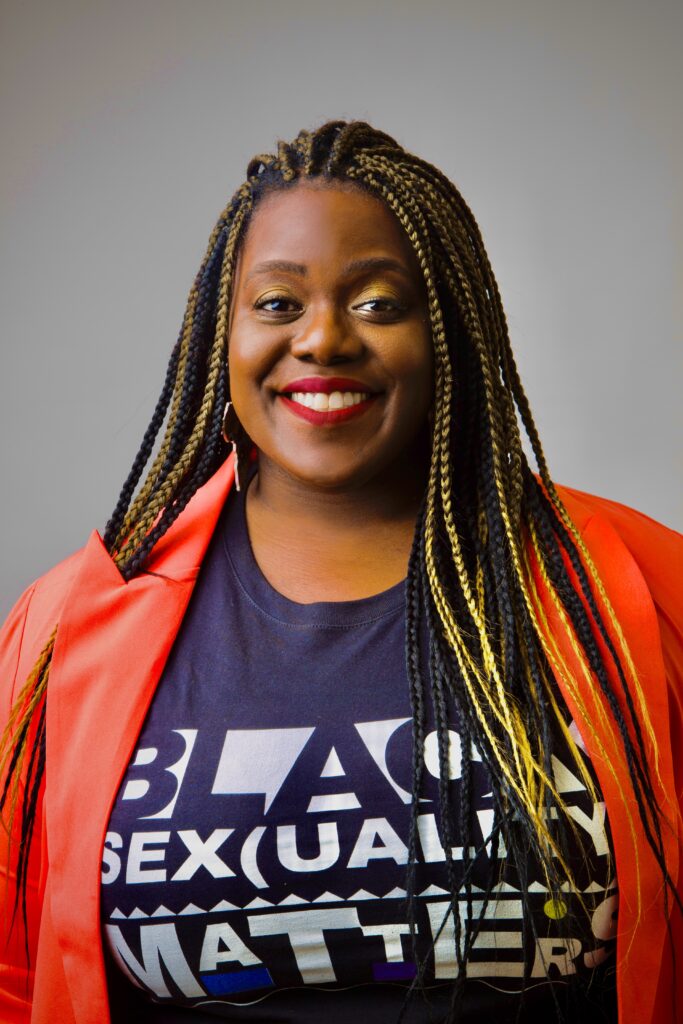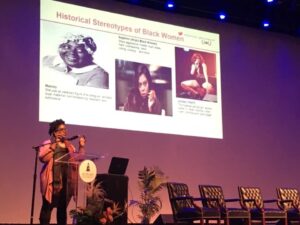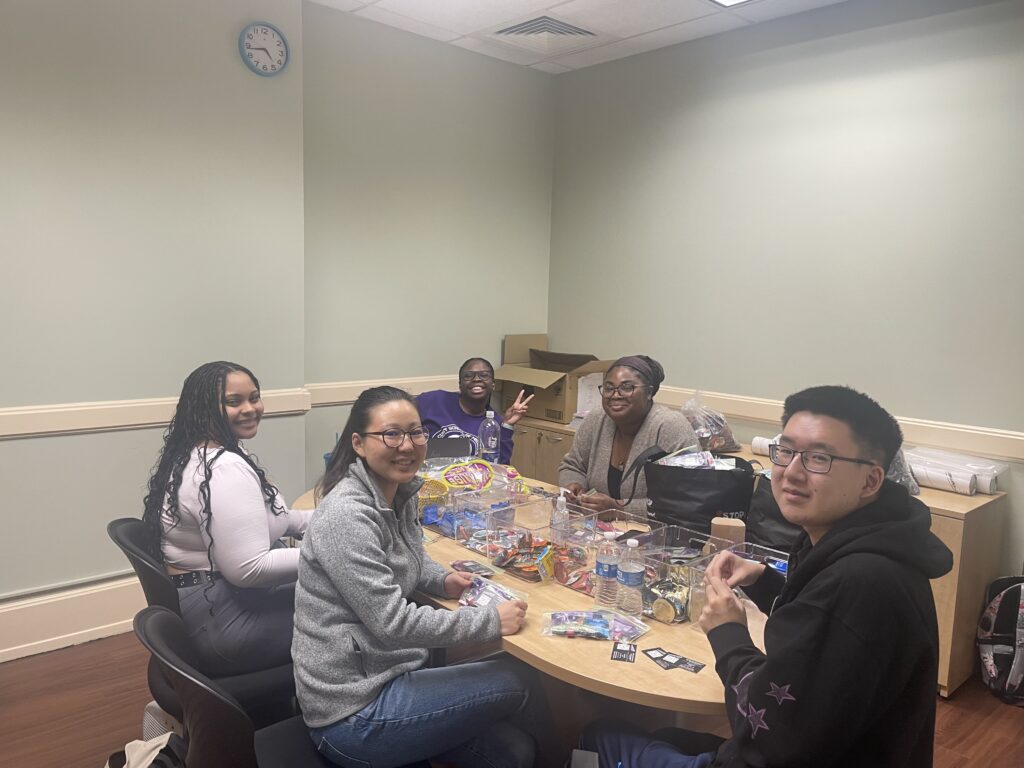
Girl group TLC with wrapped condoms pinned on their clothes. Photo: Pinterest.
Dr. Keosha Bond grew up in the era of girl hip-hop groups TLC and Salt-N-Pepa, with their socially conscious lyrics and bold fashion.
She also grew up in the era of the HIV/AIDS epidemic, when thousands of people were getting sick and dying of a disease not yet understood — a situation that prompted the musicians to create music about safe sex. TLC members were even known for wearing condoms on their clothes to stimulate discussions of sexual health.
As this all went on, Bond’s South Bronx community was hit hard by the epidemic. These experiences motivated her to become a sexual health researcher and behavioral scientist at City College, looking into the ways that HIV and other sexual diseases are transmitted.
“My research is a reflection of my life experiences,” she said in an interview. “I saw how the HIV epidemic — as well as drugs and mass incarceration — had affected the communities that I lived in. My approach to research is a strength-based by really looking at the protective factors within communities and the people.”

Dr. Keosha Bond. Photo: Courtesy of Keosha Bond.
Bond has been working with the college for three years out of the School of Medicine. Previously, she was a professor at the New York Medical College and a postdoc at New York University. Her work focuses on “understanding how social, structural and cultural factors influence the transmission of HIV among marginalized and minoritized communities,” she said.
This work is done in Bond’s lab, the L.O.V.E. Project Research Lab. L.O.V.E. stands for “learning options through video education.”
Digital technology plays a large role in the lab’s work, as it has become one of the primary ways people communicate with one another. To incorporate this aspect into the work, Bond uses it to disseminate information for the projects.
Students who partake in the lab help run its Instagram, @theloveprojectlab, for which they create content about sexual health.
Bond’s most recent and largest study, P3 — Pleasure, Positive, Practices — is about finding ways to increase HIV self-testing and biomedical methods such as PEP and PrEP usage through at-home sexual wellness kits tailored for Black, sexual minority men. PEP, post-exposure prophylaxis, and PrEP, pre-exposure prophylaxis, are medications taken to prevent HIV transmission.
and biomedical methods such as PEP and PrEP usage through at-home sexual wellness kits tailored for Black, sexual minority men. PEP, post-exposure prophylaxis, and PrEP, pre-exposure prophylaxis, are medications taken to prevent HIV transmission.
“What is great about the [randomized control trial] study, is that it’s a multi-level — individual, interpersonal, community — multi-component study, but one of the things that’s really highlighted in this work is that we are using a very sex-positive approach as part of the intervention process,” Bond said.
Not all of her work is focused just on HIV, though. Bond also studies sexual health more broadly as it impacts the Black and LGBTQ+ communities.
“Most of my work is focused on HIV prevention, but, really, I would say I’m a sexual health researcher,” she said. “HIV is one aspect of sexual health, but if we really want to hone in on how to address HIV within in our communities, we really need to normalize how we talk about sex in general and sexual health. We need to normalize that HIV testing and HIV prevention practices are part of your wellness and not just something you do as a respond to a problem, because that’s where a lot of the stigma that comes in.”
A recent study not focused on HIV was called the Turn IT UP! study, or Transgender Unique Resources and Networking through Internet Technology. This project tried to learn how transgender women use the internet for sexual health support and addressed the need to create more easily accessible resources about sexual health specifically for transgender people.

Bond’s students helping pack sexual health giveaway bags. Photo: Courtesy of Keosha Bond.
Another study by Bond looked at the sexual socialization of transgender and gender-diverse youth. Sexual socialization is how teens learn and internalize information, attitudes, norms, and expectations about sexual behaviors and relationships, according to the Encyclopedia of Sexuality and Gender.
CCNY students can learn from Bond by taking her class, “Introduction to Population Health and Primary Care,” an overview of how external factors impact health outcomes for people and communities.
After all, community was what got her started in this line of work.
“For me, it was like, ‘Well, what can I do to help my community?’” she said. “It was always in my heart.”

Amanda is a student at the CUNY Graduate School of Journalism, where she’s studying health & science reporting and broadcast journalism. She graduated from Baruch College in May 2022, where she double majored in journalism & creative writing and political science and double minored in environmental sustainability and communication studies. She has been published in City & State, BORO Magazine, Bklyner, The Canarsie Courier, the New York City News Service, PoliticsNY, Gotham Gazette, Bushwick Daily, DCReport, News-O-Matic, The Queens Daily Eagle, Tower Times, The Ticker, and Dollars & Sense Magazine.